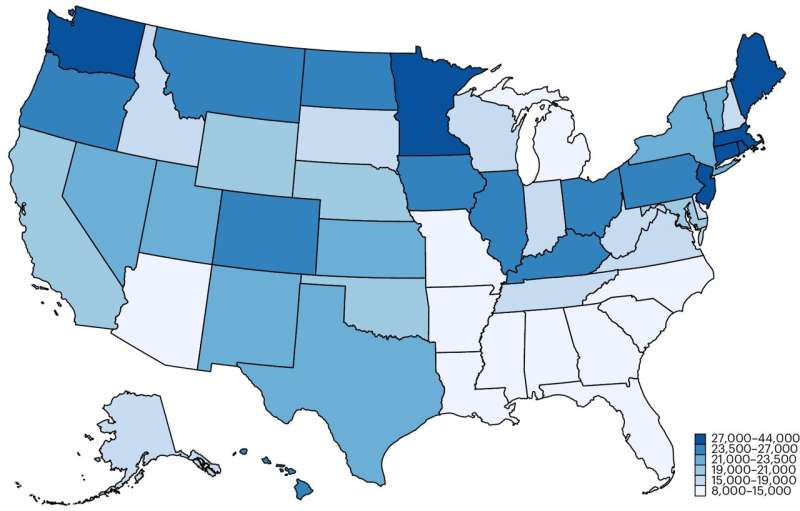
A recent national study provides compelling evidence that generous unemployment insurance benefits during the COVID-19 pandemic significantly reduced the use of high-cost credit. Researchers discovered that lower-income individuals in states with more generous benefits were notably less likely to take out new credit cards, personal loans, or payday loans compared to those in states with less generous support.
This study, published in the journal Nature Human Behaviour, was conducted by Rachel Dwyer, a sociology professor at The Ohio State University, and Stephanie Moulton from the John Glenn College of Public Affairs.
According to Moulton, these findings demonstrate that unemployment insurance programs can be crucial in preventing low-income Americans from worsening their financial situation. “Providing more generous unemployment benefits helps people avoid these really expensive types of debt that are costly not only for individuals, but eventually for society,” Moulton stated.
The research analyzed data from a large sample of 2.3 million Americans between late 2019 and late 2021. The team used information from Experian, a consumer credit bureau, to track whether participants acquired new credit cards, personal loans, or alternative financial services (AFS) loans during the study period.
By examining variations in unemployment benefits across states and over time, the researchers were able to assess how benefit levels influenced debt avoidance. They found that more generous benefits led to a decrease in high-cost credit use, especially among those in the lowest-income groups.
The study revealed a 9.7% lower likelihood of low-income individuals taking out a new credit card in states with the most generous benefits compared to those with the least. The difference was even more pronounced with AFS loans, which include high-interest payday loans. The lowest-income consumers were 24% more likely to use these costly loans in states with less generous benefits.
While higher and middle-income households could rely on savings or credit cards during job loss, low-income individuals often lack these resources and may turn to expensive AFS loans as a last resort. Moulton noted, “For low-income consumers, AFS loans may be the only place they can go as their last resort, so they turn to these very expensive ways to make ends meet.”
The study also looked at other indicators of how people managed during the COVID recession, such as credit card spending or loan applications. The results consistently showed that those in states with generous benefits fared better financially.
This research highlights an additional benefit of government programs like unemployment insurance. Moulton concluded, “If we are preventing some share of this really high-cost borrowing from happening, we are preventing a cost that might ultimately be borne by society.” She added that avoiding high-interest loans can prevent financial hardships that impact not just individual credit but the broader economy as well.

:max_bytes(150000):strip_icc():format(webp)/alec-baldwin-torino-film-festival-121824-3cf7cfbe5c4f4bcbb9197de4de062ea6.jpg?strip=all&resize=370,370)
:max_bytes(150000):strip_icc():format(webp)/Jimmy-Fallon-and-Prince-Harry-092624-baa1362d743d4f39a7d60bf57eb6e8b2.jpg?strip=all&resize=370,370)
:max_bytes(150000):strip_icc():format(webp)/randy-moss-121324-40b858c71b0f40bfa399e2fe00152b2a.jpg?strip=all&resize=370,370)
:max_bytes(150000):strip_icc():format(webp)/scandal-kerry-washington-121824-c51a2b5f0ef741268474bec2498c285a.jpg?strip=all&resize=370,370)
